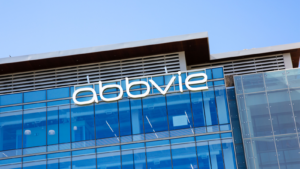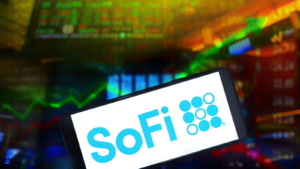
The financial media does its best to keep you informed about what’s happening in the market. However, this has the effect of giving significant attention to a handful of leaders or laggards. That creates an opportunity for investors who have the patience to look for must-own overlooked stocks.
Overlooked stocks are not necessarily underperforming the market. In some cases, these stocks simply are slow and steady at a time when investors want to find the newest and brightest shiny object.
However, not every shiny object is Nvidia (NASDAQ:NVDA). And the more light that starts shining on a high-profile stock, the more likely it is that the stock could move sharply lower on the slightest bit of bad news.
Another common misconception about overlooked stocks is that they come with a cheap price tag. This is also not necessarily true. In fact, sometimes a stock gets overlooked because it seems too expensive for retail investors.
In the end, must-buy overlooked stocks come down to value more than price. Because value always wins out over time. Here are seven stocks that investors are overlooking now but may shift back towards when market conditions change.
AbbVie (ABBV)

AbbVie (NYSE:ABBV) is up 13.4% in the last 12 months but is down 11% in the last three months. The biopharmaceutical giant is being overlooked for a couple of reasons. First, with a price-to-earnings (P/E) ratio of around 40x, it’s hardly a cheap stock. Second, investors want to see how the company’s revenue and earnings will hold up now that its flagship Humira drug faces biosimilar competition in the U.S. and Europe.
When looking at the P/E ratio it’s helpful to note that AbbVie has a forward P/E of around 13x earnings. That’s much more attractive.
Then there’s the Humira question. There’s no doubt that the company is seeing pressure from competitors. In its April earnings report, AbbVie reported a 39% decline in Humira revenue in the United States.
However, AbbVie also reported strong growth from two of its newer drugs: Skyrizi and Rinvoq. These drugs are integral to the company’s plans for replacing the lost Humira revenue. AbbVie also has a deep pipeline with 50 drugs in mid- and late-stage development.
Since the company’s earnings report, analysts have assigned a consensus price target of $182.90. That’s a 17% gain. Plus, AbbVie is a dividend king that not only has increased its dividend for 52 consecutive years, but the stock has an attractive yield of 3.98%.
Johnson & Johnson (JNJ)

Johnson & Johnson (NYSE:JNJ) is another biopharmaceutical company on this list of must-own overlooked stocks. Unlike AbbVie, investors can’t say that JNJ stock is expensive. It has a current P/E of 9x and a forward P/E of 13x.
Nevertheless, valuation remains an issue as investors are trying to price JNJ stock without its consumer products division that it spun off as Kenvue (NYSE:KVUE) in 2023. The company is also working to resolve its long-running lawsuits stemming from its talc powder. In January, AbbVie announced it was moving forward on a $6.475 billion proposed settlement of tens of thousands of lawsuits. However, there may still be some work to do.
The past shouldn’t be overlooked. But the bullish case for JNJ stock is about the future. And its acquisition of Shockwave Medical (NASDAQ:SWAV) is a key part of that. The $13.1 billion acquisition will bring Shockwave’s first-to-market intravascular lithotripsy technology (ILT) under Johnson & Johnson’s MedTech division.
Once this acquisition becomes accretive to JNJ’s top and bottom lines, JNJ stock will look extremely attractive for more than just its dividend which has a 3.48% yield. And with 62 years of consecutive dividend increases, Johnson & Johnson is another dividend king on this list.
PepsiCo (PEP)

PepsiCo (NASDAQ:PEP) is the third and final dividend king on this list of must-own overlooked stocks. The consumer staples giant has been largely able to pass along some of its higher producer costs. But growth is slowing, and there is concern that consumer spending is slowing as well. Just as Pepsi benefits from both beverage and snack food sales when consumers trade up, it can suffer when consumers trade down.
This pessimism is reflected in PEP stock, which is essentially flat in 2024 and down about 5% in the last 12 months. That’s not a massive dip to buy, but the stock is trading at around $170 which has served as a level of support and resistance in the last two years.
History shows that buying dips, no matter how small, in PEP stock is a solid strategy. One reason has to do with the company’s previously mentioned dividend which yields 2.96% as of this writing and has been growing for 53 consecutive years.
Sofi Technologies (SOFI)

Sofi Technologies (NASDAQ:SOFI) falls under the category of “yeah, but” stocks. Okay, I invented the category, but the premise is this. Sofi has largely delivered what it has said it would do. It was an online lender primarily known for providing student loans. Yeah, but it wasn’t a real bank. Then it got its bank charter. Yeah, but it wasn’t profitable. Now it’s delivered two straight quarters of positive adjusted EPS.
Still the stock can’t seem to get out of the snares of short sellers. A considerable 18% of the SOFI stock float is being shorted. And with only 38% of the shares owned by institutions, it’s been a tough hold.
SOFI stock is bouncing around $6.80. The good news is this has been a solid level of support. The bad news is that the company continues to revisit this level. The key will come from future growth, and in that regard being an internet-only bank lowers the company’s customer acquisition costs.
Pfizer (PFE)

Pfizer (NYSE:PFE) is down 24% in the last 12 months and nearly 50% since its peak of near $60 in November 2021. The rise and fall of PFE stock was entirely predictable. The company was first-to-market with a vaccine for Covid-19. And it enjoyed the benefits of that position in its revenue and earnings.
However, as demand for the company’s Covid-19 products wanes, so does the stock which is facing difficult comparisons. That said, Pfizer is being overlooked for many reasons, some of which have nothing to do with the intrinsic value of the stock.
That’s part of the buying thesis. The mRNA technology that was used in the Covid-19 vaccine is already being used to develop other vaccines. The company is also making strides in oncology as well as areas such as gene therapy and precision medicine. And Pfizer has the balance sheet to get these products to the finish line whether it goes alone or through acquisition.
Analysts have a consensus Hold rating on PFE stock, but the price target is 37% higher. That’s a discrepancy that makes it tempting to start a position. That’s particularly true because, while you wait, you’re getting a dividend with a 5.97% yield.
Enphase Energy (ENPH)

Solar stocks have been hit and miss for investors. There are stocks like First Solar (NASDAQ:FSLR) that are ripping higher. But a company like Enphase Energy (NYSE:ENPH), which was a darling of the solar sector in 2021 and 2022 has been having a rough time.
The company serves a largely residential audience and has been faced with declining revenue which has caused earnings to turn negative. Simply put, Enphase desperately needs a rate cut that will stimulate home buying and consumer investment in solar technology.
That may have to wait until 2025, but here’s why you may want to put Enphase on a list of must-own overlooked stocks. Analysts have a consensus price target of $127.12. That’s 2% lower than the price as of this writing. But 22 out of 42 analysts give ENPH stock a Strong Buy or Buy rating. That suggests there may be a bigger dip coming for ENPH stock, but that would be a good time to take a position.
Norwegian Cruise Line (NCLH)

Cruise line stocks were a no-brainer long-term buy in 2020 and 2021. The industry was decimated by the global pandemic. But the smart money knew the industry would come back as it has. However, Norwegian Cruise Line (NYSE:NCLH) has been largely ignored. Investors have a high bar and little patience. All it took was a slight miss on the top line to spook investors and turn NCLH stock negative for the year.
But this could be the stock’s time to shine. Analysts are lining up behind Norwegian on expectations of earnings growth that could reach 30%, not just this year but for each of the next three years. That would help the cruise line retire a significant chunk of the $14 billion net debt load it’s still carrying.
To deliver on those projections, it seems like the company is counting on younger travelers. The company recently cited millennial and Gen-Z passengers as being its fastest growing demographic. That could be a double-edged sword if the economy worsens. However, over time these are the passengers that will have growing income to spend on experiences.
On the date of publication, Chris Markoch did not have (either directly or indirectly) any positions in the securities mentioned in this article. The opinions expressed in this article are those of the writer, subject to the InvestorPlace.com Publishing Guidelines.






